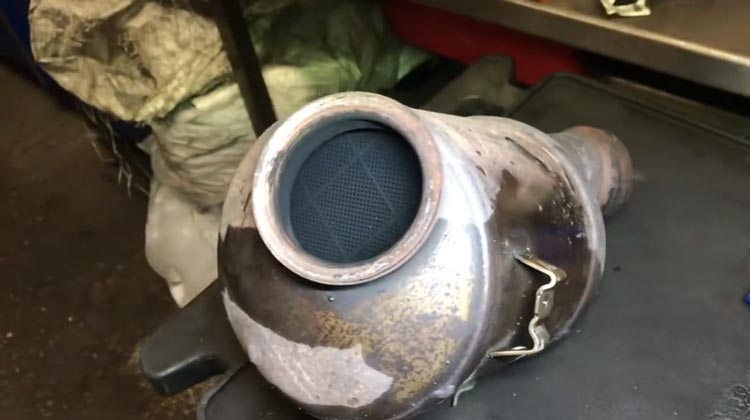Diesel particulate filters are an important part of a diesel engine. They help to reduce emissions and keep your car running smoothly. However, if they become clogged, they can cause all sorts of problems for your vehicle. In this discussion, I will discuss the symptoms of a clogged diesel particulate filter and what you can do to fix it. Keep reading for more information!
Diesel Particulate Filter:
A diesel particulate filter is a device that is fitted to a diesel engine in order to trap and reduce soot emissions. Soot is a by-product of combustion and is made up of tiny particles of carbon. When these particles are released into the atmosphere, they can cause pollution and health problems.
Diesel particulate filters work by trapping the soot particles in the filter material. This helps to reduce the amount of soot that is emitted from the engine. Over time, however, the filter can become clogged with soot. This can cause a number of problems for your vehicle.
Symptoms of a Clogged Diesel Particulate Filter: Detailed Discussion
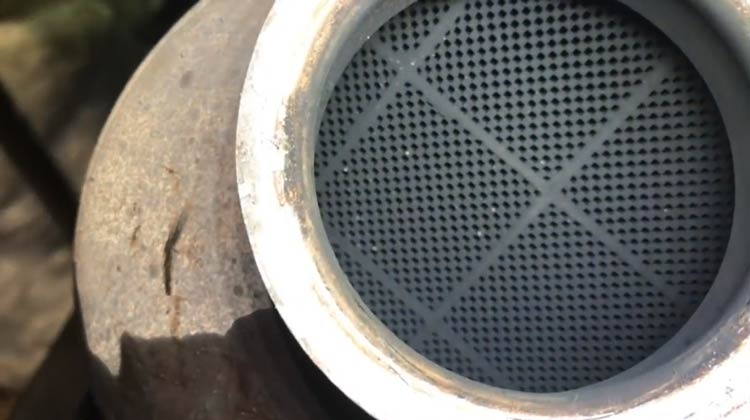
The DPF, or diesel particulate filter, is a vital component of every diesel vehicle. However, many drivers are unaware of its purpose until they need to figure out if their car has a bad DPF. If you’re wondering how to tell whether your DPF is clogged or failing, read on for some helpful tips.
The DPF filter can become clogged over time, and this article discusses the symptoms of a clogged filter. I’ll also talk about why it’s important to keep your filter clean and how much it costs to replace one.
There are several symptoms that can indicate that your diesel particulate filter is starting to become clogged. These include:
- Check Engine Light
- Poor Engine Performance
- Increased Fuel Consumption
- Damage on Turbocharger
- Difficulty in Engine Starting
- Peculiar Smells
Check Engine Light:
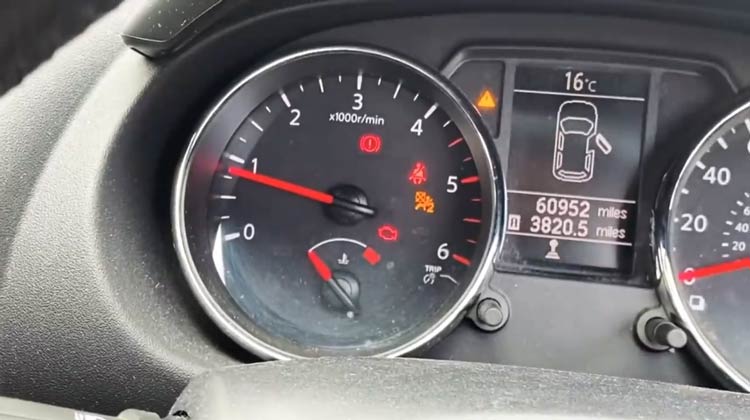
The check engine light is a warning light that comes on when the computer detects a problem with the engine. It can be something as simple as a loose gas cap or a more serious issue like a misfire. If you see this light, it’s important to have the car checked out by a mechanic as soon as possible.
A clogged diesel particulate filter is primarily signified by a check engine light on your dashboard. The DPF filter uses sensors to take measurements of the pressure and temperature both before and after filtering. If these readings do not align with the ideal pressure, then the check engine light will appear on your dashboard as an indication something is wrong.
If the check engine light comes on and you notice any of the above symptoms, there’s a good chance that your DPF is clogged. In some cases, the filter can be cleaned and reused. However, if it’s excessively dirty or damaged, it will need to be replaced.
Although there are many reason to check the engine light on. However, if the light is on and you notice any of the clogged diesel particulate filter symptoms, it’s important to have the car checked out as soon as possible. For sure you can use a code scanner to check what the error code is, but it’s always best to have a professional mechanic take a look.
Poor Engine Performance:
One of the first signs that your DPF filter is becoming clogged is a decrease in engine performance. The filter can restrict airflow to the engine, which reduces power and efficiency. You may notice that your car feels sluggish or that it takes longer to accelerate.
When the diesel particulate filter becomes blocked, it has a knock-on effect on the whole exhaust system. If there is an inefficient removal of exhaust gases from the engine, it backs up in the system.
When the backup happens, it feels like the engine is straining. The more exhaust that accumulates,
the less new fuel can come in and as a result, you cannot accelerate normally. Moreover, the engine will use more energy to expel the surplus gases.
If you notice a decrease in engine performance, it’s important to have the car checked out by a mechanic. In some cases, the filter can be cleaned and reused. However, if it’s excessively dirty or damaged, it will need to be replaced.
Increased Fuel Consumption:
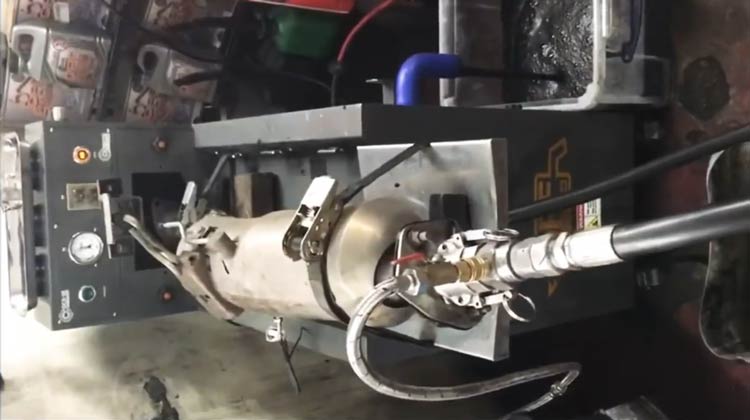
Another symptom of a clogged diesel particulate filter is increased fuel consumption. This is because the engine has to work harder to compensate for the restricted airflow. As a result, you may find yourself filling up the tank more often than usual.
If you notice an increase in fuel consumption, it’s important to have the car checked out by a mechanic. In some cases, the filter can be cleaned and reused. However, if it’s excessively dirty or damaged, it will need to be replaced.
Damage on Turbocharger:
When you have a blockage in your exhaust system, not only do you have to worry about the health of your turbocharger, but also the rising temperatures. If you don’t fix the problem quickly, the turbine housing will get hotter and hotter.
If the turbocharger goes without repair, it will become inefficient and damaged. If the housing is damaged, there could be oil leaks that would cause decreased performance. Additionally, this problem could make the oil inside of the turbocharge turn to carbon endangering the motor function altogether.
Difficulty in Engine Starting:
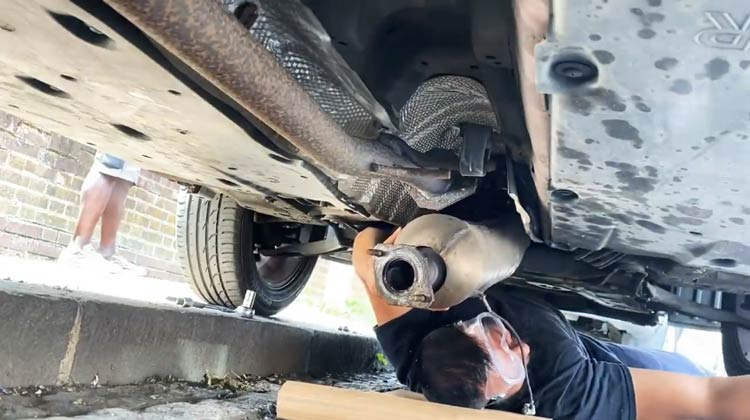
When the diesel particulate filter or DPF becomes blocked, it causes a buildup of exhaust gas in the engine. This trapped gas then has nowhere to go and creates more pressure than normal. When this happens, it becomes difficult to get the engine started. In fact, unless that pressure gets released somehow, the engine won’t want to start at all.
This is more than a problem it’s a safety hazard. If the engine were to start with all that pressure, it could break down irreparably, racking up extensive repair bills. To avoid this expensive situation, clean your DPF before it becomes blocked.
Peculiar Smells:
If there’s a buildup of exhaust gas in the engine, it can cause a noxious odor. This is not only unpleasant but can also pose dangers.
Not only are exhaust fumes dangerous to inhale, but they can also be flammable leaving you at risk of starting a fire. Moreover, it’s difficult to pay attention to other potentially hazardous smells when the exhaust is present.
Replacement Cost of a Diesel Particulate Filter:
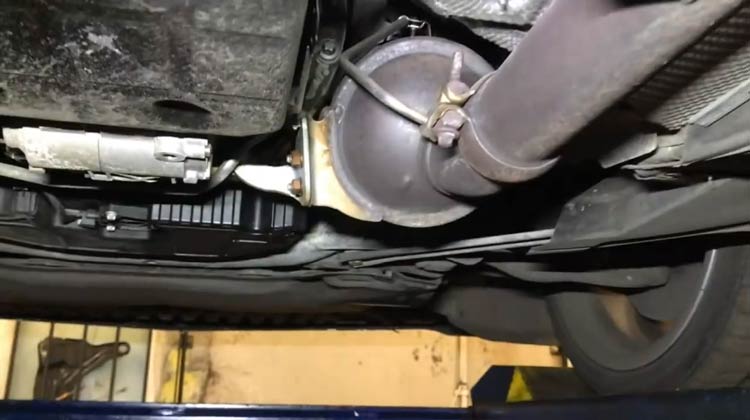
A new diesel particulate filter can be quite costly, running anywhere from $1,000 to $6,000. Because they are never cheap, it’s vital to take care of the system and ensure it runs smoothly. Many people opt to clean the filter instead of replacing it entirely for a longer lifespan.
The diesel particulate filter rarely breaks in a car with relatively low mileage, so it’s usually more practical to just clean it. New DPFs can be expensive sometimes even costing more than the car is worth. As long as you regularly maintain it, the DPF shouldn’t need cleaning any sooner than every 100,000 miles.
Cleaning The Diesel Particulate Filter:
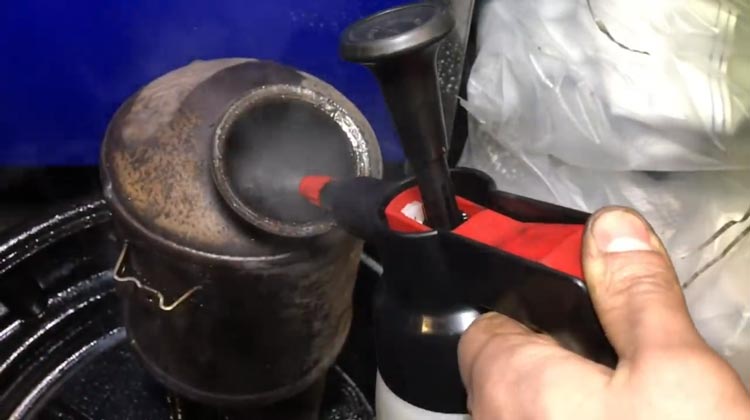
If the DPF becomes clogged, there are a few ways you can clean it and avoid replacement. One way is to use a chemical cleaning solution that will break up the soot and allow it to be flushed out.
Another way is to physically remove the filter and clean it with compressed air. This method is less effective but can still get the job done.
Finally, you can have the filter cleaned professionally. This is usually the best option as they have the right equipment and expertise to do a thorough job.
If you’re looking to save some money, you can clean the DPF yourself. However, it’s important to know how to do it properly to avoid damaging the filter. Follow these steps for the best results:
- First, use a scan tool to check for any error codes that may indicate there’s a problem with the system.
- If there are no codes, the next step is to inspect the filter. If it’s excessively dirty, it will need to be replaced.
- If the filter is only lightly soiled, you can continue with the cleaning process. Start by removing the filter from the car and disassembling it.
- Next, use a brush or compressed air to clean out the filter.
- Once the filter is clean, reassemble it and put it back in the car.
- Finally, use the scan tool to reset the system.
Cleaning a diesel particulate filter is a simple process that can be done at home. However, if the filter is excessively dirty or damaged, it will need to be replaced. Replacing the filter can be expensive, so it’s best to avoid this situation by regularly maintaining the system.
Replacing The Faulty diesel particulate filter:
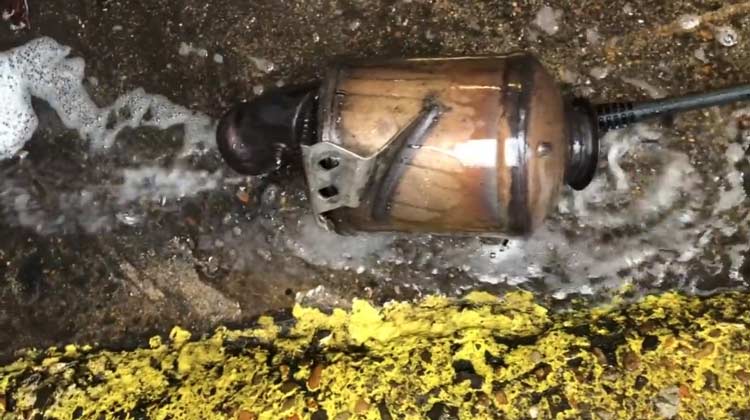
If the diesel particulate filter is excessively dirty or damaged, it will need to be replaced. Replacing the filter can be expensive, so it’s best to avoid this situation by regularly maintaining the system.
To replace the filter, follow these steps:
- First, use a scan tool to check for any error codes that may indicate there’s a problem with the system. If there are no codes, the next step is to inspect the filter.
- If the filter is excessively dirty or damaged, it will need to be replaced.
- To replace the filter, first, remove it from the car and disassemble it.
- Next, install the new filter and reassemble the system.
- Finally, use the scan tool to reset the system.
Replacing a diesel particulate filter can be expensive, so it’s best to avoid this situation by regularly maintaining the system. However, if the filter is excessively dirty or damaged, it will need to be replaced. Following these steps will ensure that the job is done properly.
To know more, watch the video:
FAQs:
Q: How often should I clean my diesel particulate filter?
A: The diesel particulate filter should be cleaned every 100,000 miles. However, if it becomes clogged, it will need to be cleaned sooner.
Q: What happens if I don’t clean my diesel particulate filter?
A: If you don’t clean your diesel particulate filter, it will eventually become so clogged that it will need to be replaced. Replacing the filter can be expensive, so it’s best to avoid this situation by regularly maintaining the system.
Q: Can I clean the diesel particulate filter myself?
A: Yes, you can clean the diesel particulate filter yourself. However, it’s important to know how to do it properly to avoid damaging the filter.
Q: Does replaceing a diesel particulate filter costly?
A: Yes, replacing a diesel particulate filter can be expensive. Therefore, it’s best to avoid this situation by regularly maintaining the system.
Q: Can I replace the diesel particulate filter myself?
A: Although you can replace the diesel particulate filter, it’s better to know how to do so correctly in order not to damage the system.
Conclusion:
Diesel particulate filters play an important role in keeping cars running cleanly and efficiently. However, over time, they can become clogged with soot and other debris. When this happens, the filter will need to be cleaned or replaced. Cleaning the filter is a simple process that can be done at home, but it’s important to know how to do it properly to avoid damaging the filter. Replacing a diesel particulate filter can be expensive, so it’s best to avoid this situation by regularly maintaining the system.
I hope that my discussion helped you a better understanding of clogged diesel particulate filter and their symptoms. If you have further questions about – Symptoms of a Clogged Diesel Particulate Filter, please feel free to ask me in the comment section below. I would be happy to help you!
